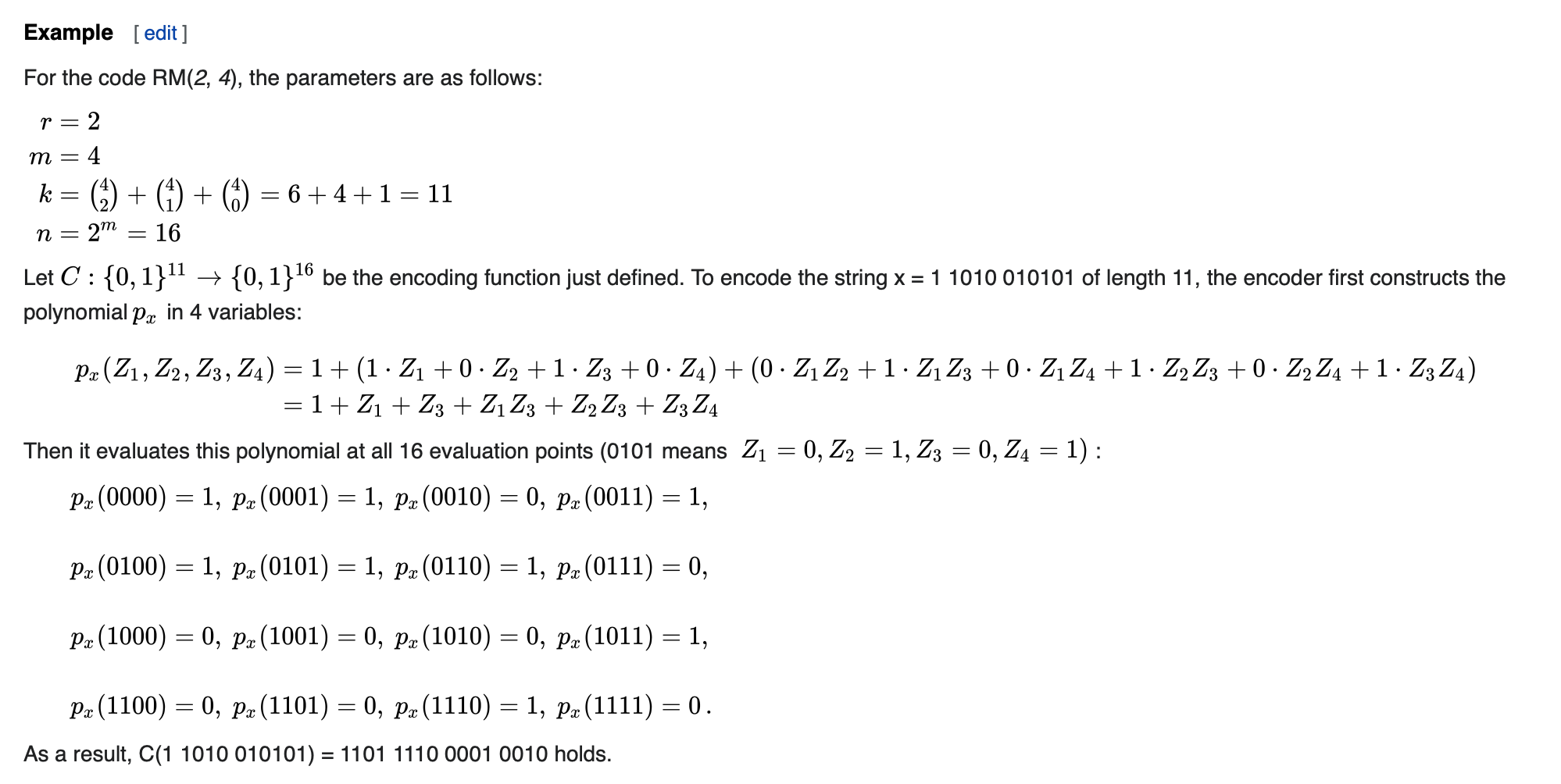Besides entanglement, the ‘magic’ of a quantum state is a measure of how useful it is for quantum computation.
Magic means non-stabilizerness, while QC in stabilizer space is proved to have no advantage over classical computation.
Many-body magic measures the resource of states in certain phase.
Page’s theorem: If a quantum state of Hilbert space dimension
is in a random pure state,then the average entropy of a subsystem with is
$S{mn}=\sum^{mn}{k=n+1}\frac{1}{k}-\frac{m-1}{2n}$.Gottesman-Knill theorem: circuits that only consist of:
(i) Preparation on computational basis;
(ii) Clifford gates;
(iii) Measurement on computational basis.
can be perfectly simulated in polynomial time on a probabilistic classical computer.The Clifford group can be generated solely by using CNOT, Hadamard, and phase gate
. Phase gate
: A phase gate represents a rotation along the z-axis on the Bloch sphere by :
gate is a phase gate with . gates and gates are also special phase gates.
Reed-Muller code: RM(r,m), encoding
-bit massage in bits.
Magic Measures
Relative entropy based measures
Relative entropy: the distance between two states:
(1) Min-relative entropy of magic:
For pure states,
(2) Max-relative entropy:
(3) Generalized robustness
Here
The log-generalized robustness is
(4) Free robustness
The log-free robustness is
Relation to other measures
(1) Stabilizer extent: Equivalent to
(2) Stabilizer fidelity
(3) Stabilizer rank
(4) Wigner negativity
Too magic to be useful
Consider Pauli MBQC (measurements only on Pauli basis). All magic resource is contained in the initial state.
While standard MBQC with cluster states requires measurements on ‘magical’ basis.
In standard MBQC, if the resource state contains too much entanglement, there will be no quantum speed-up. For Pauli MBQC and magic, there is a similar rule:
Theorem 5 (in paper): Pauli MBQC with any n-qubit resource state
